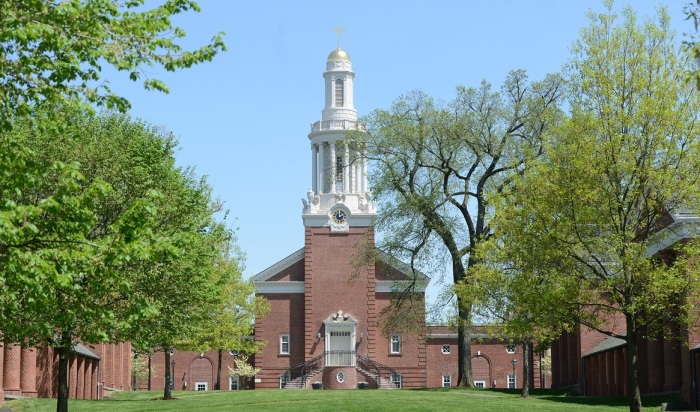Yale president calls report on university’s treatment of suicidal students disturbing ‘misinformation’

Yale University President Peter Salovey called a recent report by The Washington Post alleging that the school pressures suicidal students to withdraw and then reapply to get back into one of the world's most prestigious institutions of higher education "deeply disturbing for the misinformation it contains."
"I found the Washington Post article deeply disturbing for the misinformation it contains about Yale and for the harm it can do to students by perpetuating the damaging narrative that it is more important to stay in college than to take time to heal," Salovey, who also serves as the Chris Argyris Professor of Psychology, wrote in a statement responding to Nov. 11 report.
"I have heard from members of the Yale community expressing concerns about the November 11 Washington Post story regarding student mental health and Yale policies for student withdrawal and readmission. The Washington Post article does not reflect Yale's efforts to foster student wellness."
Salovey contends that the article "fails to acknowledge the support, processes, and policies in place or the positive outcomes associated with our work."
"To be clear, the health and well-being of Yale students are primary university priorities," he said.
The Washington Post report by William Wan highlights how Yale University, which has a $41.4 billion endowment, has faced an "explosion" in demand for mental health counseling in recent years.
In 2021, some 5,000 Yale students sought mental health treatment, a 90% increase over 2015's total.
"It's like nothing we've ever seen before," Paul Hoffman, the psychologist in charge of student mental health at Yale, told the publication.
Compared with a national average of nearly 11% at other universities, about one-third (34%) of the 14,500 students at Yale seek mental health help from college counselors.
Students suffering from suicidal thoughts were routinely encouraged to withdraw from Yale through policies designed to protect the university from litigation and reputational damage, the article states, leading some students to hide their mental health problems.
Yale is the only one of the eight Ivy League schools to get an "F" grade from researchers at the Ruderman Foundation in a 2018 assessment of its mental health withdrawal policies. The assessment was conducted in response to mental health problems becoming "increasingly pervasive on college campuses."
Other Ivy League schools didn't fare much better: Brown University (D), Columbia University (D), Cornell University (D-), Dartmouth College (F), Harvard University (D-), Princeton University (D) and University of Pennsylvania (D+).
Brown and Yale were the only two Ivy League universities not to join a four-year-long program to improve their mental health policies through the Jed Foundation, a nonprofit focusing on suicide prevention for teens and young adults.
In his statement, Salovey contends that Yale has been working to better support student mental health, particularly in light of the increased demand for mental health services triggered by the pandemic.
Those changes also include making it easier for students who withdraw for mental health reasons to get back in.
"In response to this demand, we made a substantial change to Yale College's reinstatement policy by dropping the requirement for students who have withdrawn to take two courses," he said.
"We also simplified the process for students in other ways, including dropping an informational interview with the chair of the reinstatement committee, which students told us could be intimidating."
According to Salovey, over 90% of students who were medically withdrawn in recent years have been reinstated upon their first request, while 99% were reinstated on their second request. All students who withdrew for medical reasons were reinstated by their third request.
The Yale president cited programs like Yale College Community Care, or YC, which "embeds mental health and wellness in the residential colleges and classroom buildings."
Yale has also hired new mental health staff to provide more resources for students, Salovey said.
"As a clinical psychologist and faculty member who has worked alongside mental health and student affairs colleagues at Yale for four decades, I am disappointed that the Post article misrepresents our efforts and unwavering commitment to supporting our students, whose well-being and success are our primary focus," Salovey added. "The need for student mental health and wellness support continues to increase, and Yale remains committed to responding to this need."




























